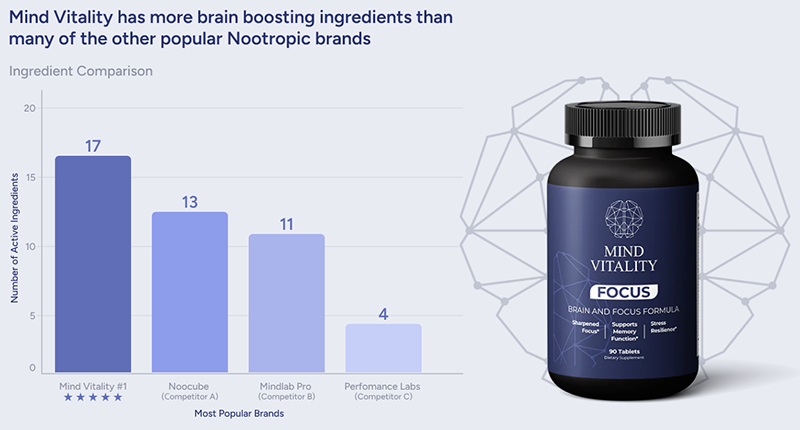
In the intricate world of endocrinology, where hormones dictate the delicate balance of our bodily functions, lipotropin emerges as a hormone of significant intrigue and complexity. Often overshadowed by its more renowned counterparts like insulin and adrenaline, lipotropin plays a pivotal role in various physiological processes, from lipid metabolism to the modulation of our immune response. Discovered in the mid-20th century, lipotropin has since been a subject of continuous scientific curiosity, revealing its involvement in energy homeostasis, skin and hair health, and even our mental well-being.
Contents
Introduction to Lipotropin
In the vast and complex network of hormones that regulate our body’s myriad functions, lipotropin stands out as a particularly multifaceted player. Though not as widely recognized as some of its hormonal peers, lipotropin plays a crucial role in several key physiological processes, including lipid metabolism, energy regulation, and the body’s response to stress.
Lipotropin Definition and Overview
Lipotropin is a hormone primarily known for its role in fat metabolism and energy regulation. It is a polypeptide hormone, which means it is made up of a chain of amino acids, and is produced in the pituitary gland, an endocrine gland known as the “master gland” because of its role in controlling the functions of many other hormone-secreting glands. Lipotropin functions as a precursor to other significant hormones, including beta-endorphin and melanocyte-stimulating hormone (MSH), indicating its central role in the body’s endocrine system.
Historical Discovery and Evolution of Understanding Lipotropin
The journey to understanding lipotropin began in the 1960s when researchers first identified it as a byproduct of the pituitary gland. Initially, its function was not well understood, and it was considered a mere intermediate in the biosynthesis of other hormones.
However, as research methodologies advanced, scientists uncovered its direct roles in the body, such as its involvement in lipid metabolism and its effect on the immune and stress responses. This evolution in understanding highlights the hormone’s significance beyond its role as a precursor and positions it as a subject of interest for further research in metabolic and cognitive health.
The Role of Lipotropin in Hormonal Balance
Lipotropin’s function extends to various aspects of bodily regulation and health, underscored by its impact on lipid metabolism and the immune system. It exemplifies the intricate nature of hormonal balance, where a single hormone can influence multiple systems, emphasizing the interconnectedness of bodily processes. Understanding lipotropin’s role provides valuable insights into the complex mechanisms that maintain health and the potential for imbalances to contribute to disease states.
Biochemical Nature of Lipotropin
Lipotropin, a hormone of significant physiological importance, exhibits a complex biochemical nature that underpins its diverse roles in the human body.
Chemical Structure and Synthesis of Lipotropin
Lipotropin is a polypeptide hormone, which means it is composed of long chains of amino acids linked together. Its production occurs in the anterior pituitary gland, where it is synthesized as part of a larger precursor molecule known as pro-opiomelanocortin (POMC). POMC undergoes enzymatic cleavage to produce several biologically active hormones, including lipotropin, adrenocorticotropic hormone (ACTH), and beta-endorphin.
The structure of lipotropin includes segments that are crucial for its activity in lipid metabolism and its ability to serve as a precursor for other hormones. This multifunctional nature highlights the complexity of hormonal synthesis and the efficiency of the body’s use of precursor molecules to generate multiple active compounds [1].
Lipotropin Secretion and Regulation
The secretion of lipotropin is tightly regulated by the body’s physiological needs and is influenced by various factors, including stress, exercise, and certain health conditions. The hypothalamus, a region of the brain that acts as the primary link between the nervous and endocrine systems, plays a pivotal role in this regulation.
It secretes corticotropin-releasing hormone (CRH) and other factors that stimulate the anterior pituitary to release lipotropin and its related hormones. Feedback mechanisms ensure that the levels of these hormones remain within optimal ranges, demonstrating the body’s ability to maintain homeostasis through complex regulatory networks.
Interaction of Lipotropin with Other Hormones
Lipotropin does not act in isolation but interacts with a range of other hormones to coordinate bodily functions. Its role as a precursor to beta-endorphin and melanocyte-stimulating hormone (MSH) is a prime example of these interactions. Beta-endorphin is known for its analgesic (pain-relieving) properties and its ability to modulate the immune system, while MSH plays a role in skin pigmentation and appetite regulation.
These interactions underscore the interconnected nature of the endocrine system, where the synthesis and action of one hormone can significantly influence the functions of others, contributing to the body’s adaptability and resilience in the face of changing internal and external environments.

Physiological Functions of Lipotropin
Lipotropin, with its diverse biochemical properties, plays pivotal roles across a spectrum of physiological functions. Its influence extends from fat metabolism to immune regulation, showcasing the hormone’s critical contributions to maintaining bodily health and wellness.
Lipid Metabolism and Weight Regulation
One of the primary roles of lipotropin is its involvement in lipid metabolism, which is crucial for weight regulation and overall energy balance. Lipotropin promotes the breakdown of fats (lipolysis) in adipose tissue, leading to the release of fatty acids into the bloodstream [2].
These fatty acids can then be utilized by cells as a source of energy, especially during periods of fasting or extended physical activity. This process is vital for maintaining energy levels and preventing the excessive accumulation of fat, thereby contributing to healthy weight management.
Role of Lipotropin in Energy Homeostasis
Beyond its direct effects on lipid metabolism, lipotropin also plays a role in energy homeostasis—the body’s ability to maintain stable energy levels despite fluctuations in both energy intake and expenditure. By influencing the mobilization of fat reserves for energy production, lipotropin helps ensure that the body can meet its energy demands in various situations, such as during exercise or in response to stress. This function is critical for overall health and well-being, as it supports physical activity, cognitive performance, and the maintenance of metabolic processes.
Impact of Lipotropin on Skin and Hair Health
Lipotropin extends its influence to the condition of the skin and hair, thanks to its role as a precursor to melanocyte-stimulating hormone (MSH). MSH is involved in pigmentation, influencing skin color and potentially protecting against UV radiation damage.
Additionally, the hormone’s effects on lipid metabolism can indirectly impact skin health, as proper fat metabolism is essential for maintaining healthy skin cells and hair follicles. Through these mechanisms, lipotropin contributes to the preservation of skin and hair vitality, demonstrating the hormone’s wide-ranging impact on the body.
Contributions of Lipotropin to Immune System Functioning
Lipotropin’s physiological functions also encompass a role in modulating the immune system. As a precursor to beta-endorphin, it indirectly participates in the regulation of immune responses. Beta-endorphin has been shown to have immunomodulatory effects, capable of enhancing the body’s defense mechanisms against pathogens while also mitigating excessive inflammatory responses that can lead to tissue damage. This aspect of lipotropin’s action underscores the hormone’s contribution to maintaining immune balance and protecting the body from disease [3].

Lipotropin and Brain Health
The intricate relationship between hormones and brain function is a fascinating area of study, with lipotropin emerging as a hormone of interest due to its potential impact on cognitive processes and mental health.
Effects on Cognitive Functions
Lipotropin, through its role as a precursor to other bioactive peptides such as beta-endorphin, influences cognitive functions in several ways. Beta-endorphin, known for its analgesic and euphoric effects, can also affect cognitive processes such as learning, memory, and attention.
The release of beta-endorphin in response to stress or exercise has been shown to improve mood and cognitive clarity, suggesting that lipotropin, by extension, plays a part in modulating cognitive health. These effects highlight the potential of lipotropin to influence brain function positively, possibly offering protective benefits against cognitive decline.
Relationship with Mood and Mental Health
The connection between lipotropin and mental health is primarily mediated through its conversion to beta-endorphin. Beta-endorphin’s ability to induce feelings of well-being and reduce pain perception is well-documented, implying that lipotropin indirectly contributes to mood regulation and emotional balance.
By modulating the release of beta-endorphin, lipotropin may help mitigate the effects of stress and reduce the risk of developing mood disorders such as depression and anxiety. This aspect of lipotropin’s action emphasizes the hormone’s role in supporting mental health, alongside its physical health benefits [4].
Lipotropin and Stress Response
Lipotropin also plays a crucial role in the body’s response to stress, both acute and chronic. The hormone’s involvement in producing beta-endorphin means it is directly linked to the body’s ability to cope with stress. Beta-endorphin can alleviate stress-induced discomfort and pain, promoting a sense of calm and well-being.
Furthermore, lipotropin’s impact on energy metabolism ensures that the body has the necessary resources to respond to stress, highlighting the hormone’s integral role in the stress response mechanism. Understanding this relationship is key to appreciating how hormonal balance affects not only physical health but also psychological resilience.
Clinical Implications of Lipotropin
The multifaceted roles of lipotropin extend beyond physiological functions to have profound clinical implications in both the diagnosis and treatment of various diseases and disorders.
Lipotropin in Disease and Disorders
Lipotropin’s role in lipid metabolism and immune system regulation implies its potential involvement in a range of metabolic and autoimmune disorders. Understanding these connections can aid in developing diagnostic and therapeutic approaches that target the underlying hormonal imbalances contributing to disease.
Obesity and Metabolic Syndrome
Given its critical role in lipid metabolism and energy homeostasis, abnormalities in lipotropin secretion or function can contribute to obesity and metabolic syndrome. These conditions are characterized by a cluster of factors that increase the risk of heart disease, stroke, and diabetes. Investigating lipotropin’s function in these contexts could lead to novel approaches to managing weight and metabolic health, emphasizing the hormone’s significance in metabolic disease pathology.
Autoimmune Diseases
The immunomodulatory effects of lipotropin, particularly through its conversion to beta-endorphin, suggest its potential role in autoimmune diseases. By influencing the immune response, alterations in lipotropin levels or activity may contribute to the development or progression of autoimmune conditions, where the body’s immune system mistakenly attacks healthy tissue. Research into lipotropin’s immunological roles offers insights into potential therapeutic strategies for modulating immune function in these diseases [5].
Dermatological Conditions
Lipotropin’s impact on skin health, through its influence on lipid metabolism and as a precursor to melanocyte-stimulating hormone (MSH), indicates its relevance in dermatological conditions. Disorders affecting skin pigmentation, texture, or overall health may be linked to lipotropin levels, suggesting that targeting this hormone could provide new avenues for dermatological treatments.
Therapeutic Uses of Lipotropin
The diverse functions of lipotropin not only highlight its role in disease but also its potential as a therapeutic agent in various clinical settings.
Weight Loss Treatments
Given its role in promoting lipolysis and regulating energy balance, lipotropin or its analogs could be explored as potential treatments for obesity and related metabolic disorders. Enhancing lipotropin activity may offer a novel approach to managing weight, especially in cases resistant to traditional diet and exercise interventions.
Potential in Treating Cognitive Impairments
The connections between lipotropin, beta-endorphin, and cognitive function suggest the hormone’s potential in treating cognitive impairments, including those related to aging, stress, and neurodegenerative diseases. By modulating neurotransmitter systems and promoting neuroplasticity, lipotropin-based therapies could support cognitive health and resilience.
Innovative Dermatological Therapies
Lipotropin’s influence on skin and hair health makes it a candidate for developing innovative treatments for dermatological conditions, from alopecia to skin disorders requiring modulation of pigmentation or healing processes. Its role in skin metabolism and immune function could lead to breakthroughs in cosmetic and therapeutic dermatology.
Future Directions in Lipotropin Research
The ongoing exploration of lipotropin’s roles in health and disease continues to uncover new insights into its clinical applications. Future research is poised to delve deeper into the hormone’s mechanisms of action, its interactions with other hormonal pathways, and its potential in personalized medicine. The development of targeted therapies that modulate lipotropin activity could revolutionize the treatment of metabolic, autoimmune, and cognitive disorders, highlighting the hormone’s significance in advancing medical science.
References
[1] Nutritional and Hormonal Induction of Fatty Liver Syndrome and Effects of Dietary Lipotropic Factors
[2] Adrenocorticotropic Hormone, β-Lipotropin, and Endorphin-Related Peptides in Health and Disease
[3] Lipotropin
[4] Lipotropic
[5] Do endorphin residues of beta lipotropin in hormone reinforce reproductive functions?

